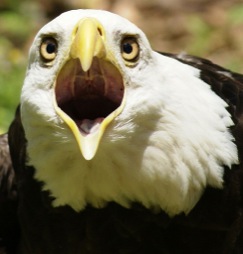On a rooftop in India a couple of years ago, a man yelled at me
over and over, "You're an abused woman.” I thought, "I am not. I know
women who are: how they act, how they look, how they speak, just being so
battered, and I am not." But the tears that ran through my body spoke
their own truth. I had surrounded myself with housewives like myself for years,
and I had given them advice, always thinking that I knew best.
Over the years people have spoken to me as though I am a child,
or called me "dear little..." I could not understand what they saw
that made them treat a grown woman in that way. They saw me, a battered woman,
bruised black and blue in violence spiritually, emotionally, psychologically.
But I could not see me. I was too busy enjoying my passive-aggressive
codependence, secretly despising and judging women around me for their
“cowardice”, because I was not “like them”. As a super-victim I could always be
the one who needed help, when I wanted to, but always in the end found a way to
lash out bitterly at the person who had helped me. No one could correct me
because my childlike learned helplessness made me the ultimate winner. An
addict that I was “helping” called me “septic” and I was. I was toxic, drowning
in the cycle of my codependence.
Growing up is indeed hard to do. Impossible to emotionally climb
that cliff, without help.
In CoDA meetings, when I had to force myself to sit down and be
quiet and listen, and stay, I learned through the humble self-reflection of
others who I was, and how to begin to “see me” for the first time. I had been
so immersed in living other people’s lives and emotions for them that I had
forgotten how to live and be, and feel for my own self.
It has been said that the first commandment is to love your
neighbor as yourself. Being human, no matter what culture or belief, seems to
be about love. I had to learn to love myself correctly, humbly, with the help
of my Higher Power, before I could love anyone else correctly and humbly.
Little by little, meeting after meeting, I sat in a circle,
learning not to judge—myself or others—sometimes crying at what I heard, or
wanting to stand up and cheer and shout, "Go on, go on, yes, that is my
life too" listening to the brilliance and depth and humility of others
sharing.
Thank you CoDA.
Thank you to the faithful people, who went week after week, and
sat there alone, when no one turned up, thank you to those people who birthed
meetings steeped in the Traditions.
I will never forget what you gave me straight into my spirit.
How I am learning to say, "I am she, this is who she is,
and I love her."
Because of you, being willing to catch buses or walk each week
to the meeting, for my sake; I am sorry for the weeks I could not be bothered
to get there.
It took me a year before I could actually hold hands with anyone
for the Serenity Prayer or before I could open my eyes when I shared.
Because of you, every week, beginning at the beginning, and
opening up the wound in your life, opening up a conversation about your
struggle, your failure, your weakness, your secrets, your shame.
Because of you, as I write this, I am crying right now, because
that is how I learned week after week, how to be human, and how to climb the
cliff. It was outstanding, you anonymous servants of CoDA, who will never be
outed, to you I say THANK YOU.
And to your Higher Power, and mine:
THANK YOU.
Maria S. 6/20/19


